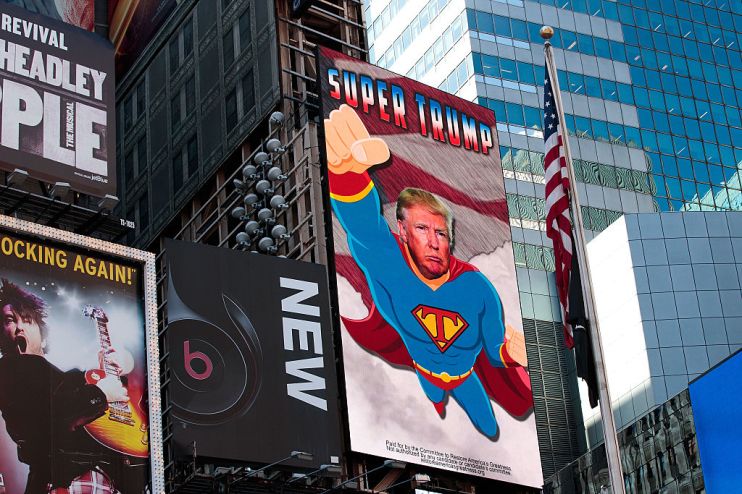UK advertisers block ‘Trump’ from campaigns amid fears over brand reputation

The vast majority of UK advertisers have blocked their campaigns from appearing next to references to Donald Trump amid fears the US President could damage their brand.
On average, 87 per cent of campaigns using keyword blocking between March and September excluded the word ‘Trump’, according to new data from Integral Ad Science.
Read more: Twitter pulls all political advertising as voters support regulation
Nigel Farage was the most excluded British politician, with 59 per cent of campaigns placing the Brexit Party leader on their blacklists.
Keyword lists allow advertisers to specify any terms that they do not want their adverts to appear alongside online, ensuring their brand image or reputation is not damaged.
However, the research revealed that UK brands were more concerned about the risk from the US political agenda than from troubles closer to home.
Prime Ministers Theresa May and Boris Johnson were excluded on just six per cent and five per cent of campaigns respectively, while Labour leader Jeremy Corbyn was blocked in less than one per cent of cases.
Advertising’s most-blocked political figures
| Political figure name | Exclusion rate (%) |
| Donald Trump | 87 |
| Nigel Farage | 59 |
| Tommy Robinson | 17 |
| Theresa May | 6 |
| Boris Johnson | 5 |
| Jeremy Corbyn | 0 |
Moreover, only 21 per cent of brands opted to blacklist the more general term ‘Brexit’, despite a small peak following May’s resignation in late May.
Exclusion of the term ‘UKIP’ also fluctuated over the last three months, with only one per cent of campaigns blocking references to the party near the first deadline to leave the EU, compared to eight per cent over the six-month period.
Some brands, however, chose to avoid the political minefield entirely, and the general term ‘politics’ was banned by almost 60 per cent of campaigns. ‘Westminster’ was the most-blocked political term, peaking at roughly 90 per cent in July.
“Risk thresholds are unique to each brand, however it is interesting to see in the current political climate that many brands are choosing to exclude political keywords – and even more fascinating that UK brands see content aligned to ‘Trump’ as having a greater impact on their brand’s reputation, than their own country’s political turmoil,” said Nick Morley, EMEA managing director at Integral Ad Science.
Brand safety has become an increasingly important consideration for advertisers amid concerns campaigns have been appearing alongside harmful or inappropriate content.
In June top brands including Unilever, Diageo and Procter & Gamble signed up to a new alliance with tech giants in a bid to improve brand safety.
Read more: Heinz and Unilever advertise on Pornhub, UK’s most popular adult website
The partnership, dubbed the Global Alliance for Responsible Media will lobby publishers and platforms to remove harmful and misleading content and “rapidly improve” digital safety.
But last week Unilever and Kraft Heinz faced criticism after it emerged they had advertised on Pornhub, the world’s largest adult website.
Main image credit: Getty